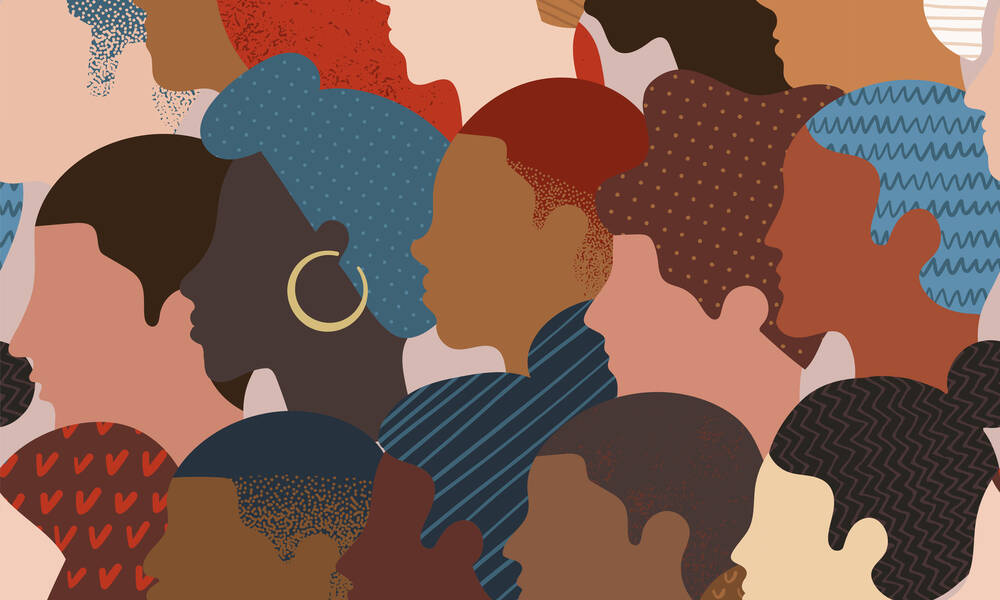
How HR Professionals Can Help Staff Talk Race Relations at Work
The way white and Black workers view discrimination and opportunity at the office diverges greatly, finds a new study from the Society for Human Resource Management. Having employees discuss race in the right way can help, the group says.
George Floyd’s death earlier this year has sparked a new focus on race relations in all parts of the nation, including workplaces. The Society for Human Resource Management, as part of its Together Forward @ Work initiative, is looking at race relations in the workplace and how HR professionals can help improve diversity and inclusion in workplaces.
“2020 has brought no shortage of obstacles that—beyond affecting all Americans personally—present unique challenges to our workforces and our places of work,” said SHRM President and CEO Johnny C. Taylor, Jr., SHRM-SCP. “As much as we’d like to think difficult conversations shouldn’t be—and traditional thinking was they shouldn’t be—brought to work, that’s just not the way it happens anymore.”
Taylor says the goal of Together Forward @ Work is “a call to action for the business community to drive racial inequity from the workplace.” One of the first outputs from this campaign is a new report, “Journey to Equity and Inclusion” [PDF], that provides research on employees’ and HR professionals’ views on race and inequity in the workplace. The report shows that perceptions of workplace culture and equity varied greatly based on race.
Among HR professionals, overall 41 percent found their workplace wasn’t doing enough to provide opportunities for Black employees. When broken down by race, 68 percent of Black HR professionals felt that way, compared to 35 percent of white HR professionals. Among workers asked the same question, 21 percent of white workers thought companies weren’t doing enough, compared to 46 percent of Black workers.
“Considering the significant diversity and inclusion investments into the American workforce in the past decade, it’s notable that more than a third of all workers feel their workplace actively discourages discussion of racial justice,” Taylor said. “We also learned that a third of Black workers feel disrespected, undervalued, and unvalued in some instances in the workplace.”
While racial discrepancies were found in much of the report data, one place alignment existed was on the need to have discussions about race at the workplace, with 70 percent of HR professionals saying it was appropriate. The report says HR professionals can help get workplaces talking about racial inequity in the right ways. It includes three recommendations to help workplace conversations stay on track:
- Listen, and don’t conflate, compare, or contrast. Listen to others with an open mind, hearing their story without injecting personal views into it.
- Discuss, don’t debate. Emphasize that the purpose of getting together is to discuss, and not to debate or disagree. It is important to setup discussion rules.
- Set goals and honor feedback. Discussions about racism should be treated similarly to discussions about job performance. Avoid blame and attribution and focus on behaviors.
“The findings suggest it’s not that people don’t want to have the conversations, I think the biggest fear is they don’t feel equipped to have them,” Taylor said. “That is, frankly, what we are hoping to solve for with the Together Forward @ Work Campaign.”
Taylor said it’s incredibly important to follow best practices advocated in the report, because just telling people to have race conversations can do more harm than good. “We are not just saying, have these conversations because that carries with it great peril,” Taylor said. “Our focus is not just on having the conversations, but equipping leaders with the skills they need to do it properly.”
While conversations won’t solve all the problems in perception, they are a good start.
“The work to rewire such ingrained behaviors is hard, but not all the solutions have to be,” Taylor said. “A simple conversation strategy is one key—it won’t resolve all of it—but it is one key variable in success. HR professionals know how to do this.”
How is your association planning to manage conversations about race in workplace? Share in the comments.
(VictoriaBar/iStock/Getty Images Plus)






Comments